Among the female Mando-pop stars, there's a fairly clear division between the girls and the women, and it's not simply an issue of age.
In the girl camp, Jolin Tsai (蔡依林) epitomizes the lasting appeal of the girl next door, with the barely concealed, budding sexuality that she flaunted at a concert last weekend in Taipei.
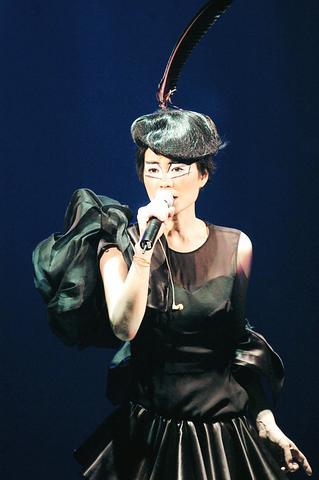
PHOTO COURTESY OF SILVER FISH
Meanwhile, on the women's side, Faye Wong (王菲) reigns supreme for her grace and captivating unattainability, a type of regal aloofness nurtured over 15 years as a vaguely mysterious superstar whose audiences with the public are carefully staggered and always preceded by much fanfare and excitement. Her concert tomorrow at Taipei's Municipal Stadium is no exception.
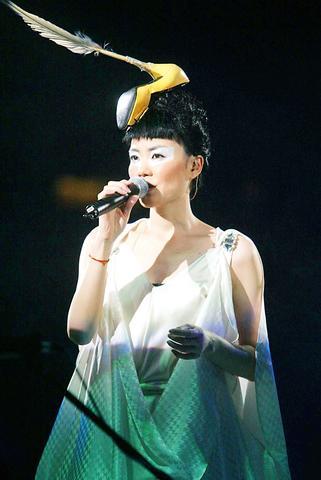
PHOTO COURTESY OF SILVER FISH
As of press time, the only tickets remaining are for the "rock and roll" section of the stadium, which is the standing area on the field starting from about 50m from the stage. These are going for NT$1,500 a piece, but before anyone chokes on their tea, those are the medium-priced tickets. All the prime tickets in the NT$3,000 to NT$2,500 range were sold out weeks ago, along with the NT$800 and NT$1,000 tickets. The sales so far ensure a crowd of about 40,000.
Wong generates such massive following by being, first and foremost, one of the most gifted singers in Mando-pop, a talent handed down, she says, by her mother who was a revolutionary opera singer in China. It no doubt also helped that she inherited a 175cm frame and a model's good looks.
Her first album was her self-titled debut when she performed under the name Shirley Wong, released in 1989, less than two years after migrating from her native Beijing to Hong Kong's greener pastures. Since then, she's transformed herself multiple times, first ditching her original stage name in favor of her current one after taking a break in the US between 1991 and 1992, and later taking the path of most Hong Kong pop stars to experiment with movie roles, notably in Wang Kar Wai's (王家衛) Chunking Express (重慶森林) and most recently 2046.
Wong also had a brief fascination for the ethereal music of the Cocteau Twins in the mid-1990s, which manifested itself in three covers of the Scottish band's songs on Wondering Music (胡思亂想, 1994) and collaborations with the band on Impatience (浮躁, 1996), and Faye Wong (快樂不快樂, 1997). The collaborations seemed tailor-made, as Wong shares the same distant-sounding, high-pitched siren voice of the Cocteau Twins' Elizabeth Fraser, and the gauzy aesthetic of the Twins' album covers even made its way onto Wong's album cover art.
The overwhelming Cocteau Twins influence began to wane, though, with the release of Sing and Play (唱游, 1998) and Only Love Strangers (只愛陌生人, 1999), when Wong set off in a more blatantly pop direction. She still retained some of the edge that continued her flirtation with anti-pop status, but the sound became more accessible, and, dare one say it, KTV-friendly. Her most recent album, To Love (將愛, 2003), is a mosh of her two recent artistic tendencies: saccharine pop and daring avant-garde.
By juggling these two styles, Wong's status has only risen over the years. So much so that, even without releasing any new material, she can drop into town and pack a stadium, as she's sure to do tomorrow.
Performance notes:
What: No Faye, No Live
When: Tomorrow, 7pm
Where: Taipei Municipal Stadium, 46 Bade Rd, Sec 1, Taipei (
Tickets: Available at door or through Era ticketing at www.ticket.com.tw. Only tickets for NT$1,500 remain.
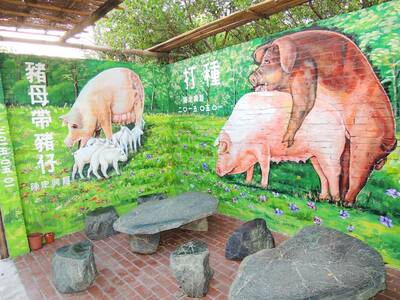
May 6 to May 12 Those who follow the Chinese-language news may have noticed the usage of the term zhuge (豬哥, literally ‘pig brother,’ a male pig raised for breeding purposes) in reports concerning the ongoing #Metoo scandal in the entertainment industry. The term’s modern connotations can range from womanizer or lecher to sexual predator, but it once referred to an important rural trade. Until the 1970s, it was a common sight to see a breeder herding a single “zhuge” down a rustic path with a bamboo whip, often traveling large distances over rugged terrain to service local families. Not only
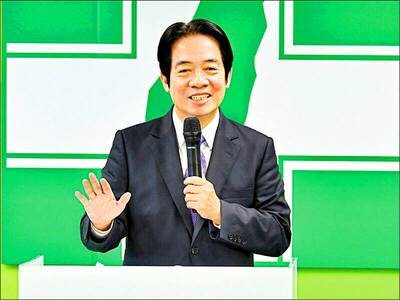
Ahead of incoming president William Lai’s (賴清德) inauguration on May 20 there appear to be signs that he is signaling to the Chinese Communist Party (CCP) and that the Chinese side is also signaling to the Taiwan side. This raises a lot of questions, including what is the CCP up to, who are they signaling to, what are they signaling, how with the various actors in Taiwan respond and where this could ultimately go. In the last column, published on May 2, we examined the curious case of Democratic Progressive Party (DPP) heavyweight Tseng Wen-tsan (鄭文燦) — currently vice premier
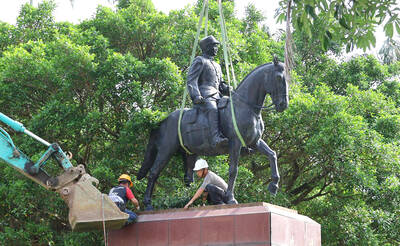
The last time Mrs Hsieh came to Cihu Park in Taoyuan was almost 50 years ago, on a school trip to the grave of Taiwan’s recently deceased dictator. Busloads of children were brought in to pay their respects to Chiang Kai-shek (蔣中正), known as Generalissimo, who had died at 87, after decades ruling Taiwan under brutal martial law. “There were a lot of buses, and there was a long queue,” Hsieh recalled. “It was a school rule. We had to bow, and then we went home.” Chiang’s body is still there, under guard in a mausoleum at the end of a path

Last week the Directorate-General of Budget, Accounting and Statistics (DGBAS) released a set of very strange numbers on Taiwan’s wealth distribution. Duly quoted in the Taipei Times, the report said that “The Gini coefficient for Taiwanese households… was 0.606 at the end of 2021, lower than Australia’s 0.611, the UK’s 0.620, Japan’s 0.678, France’s 0.676 and Germany’s 0.727, the agency said in a report.” The Gini coefficient is a measure of relative inequality, usually of wealth or income, though it can be used to evaluate other forms of inequality. However, for most nations it is a number from .25 to .50